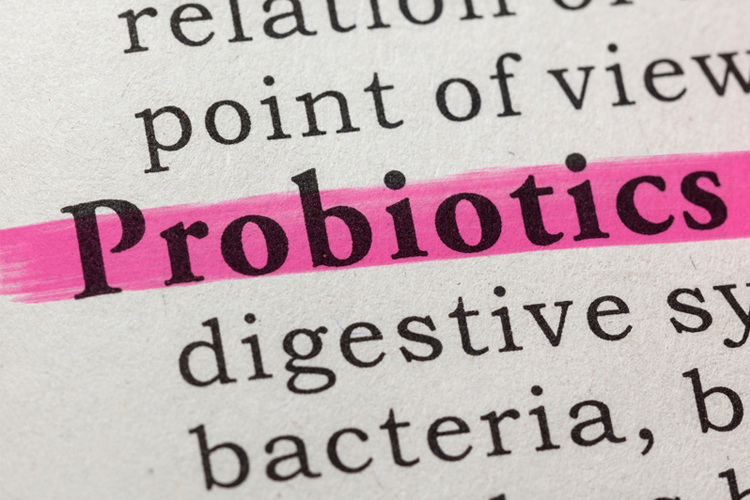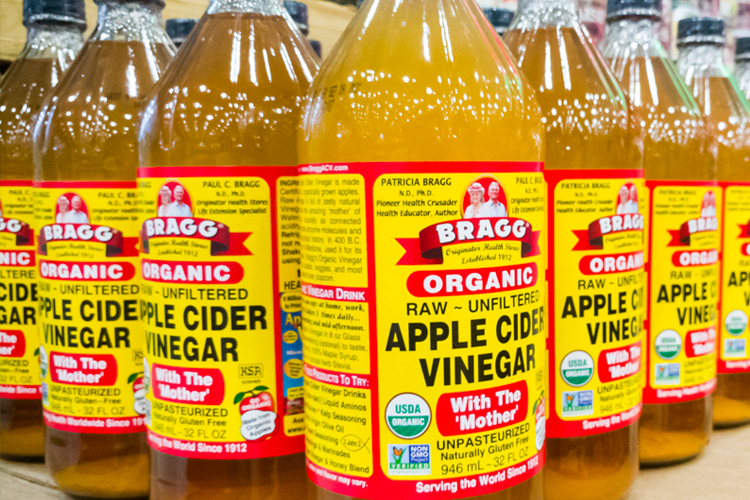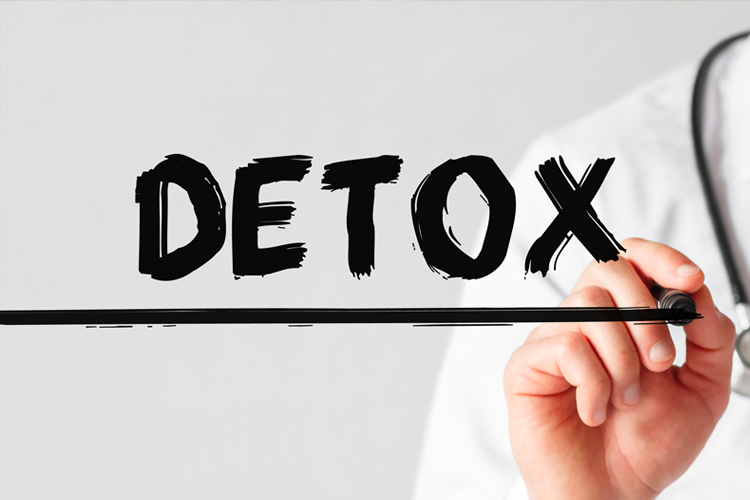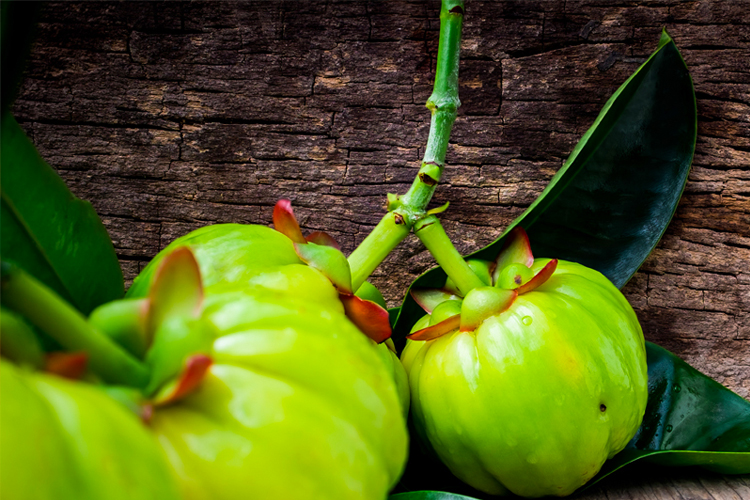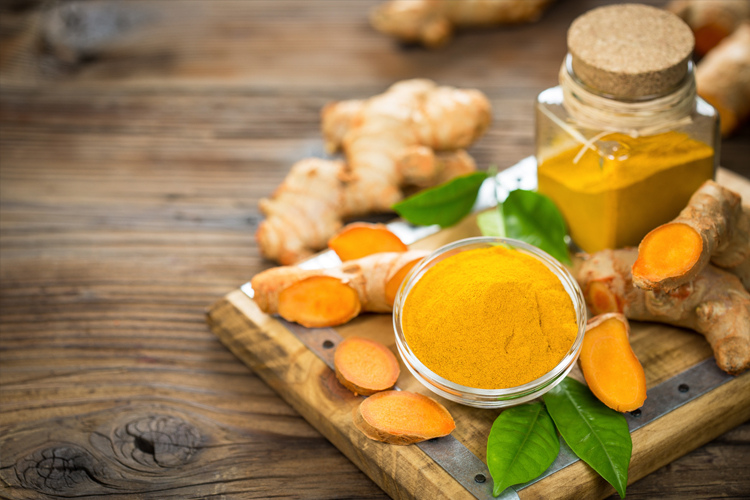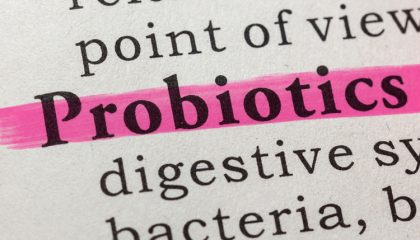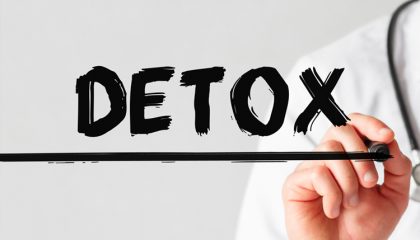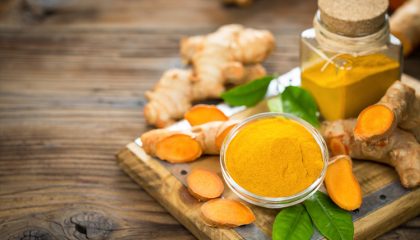The bacteria in your body outnumber your body’s cells 10 to one. Most of these bacteria reside in your gut.
Most of these bacteria reside in your gut, and the majority are quite harmless.
Having the right gut bacteria is even linked to numerous health benefits, including weight loss, improved digestion, enhanced immune function, healthier skin and a reduced risk of many diseases (1, 2Trusted Source).
Probiotics, which are a certain type of friendly bacteria, provide health benefits when eaten.
They are often taken as supplements that are supposed to colonize your gut with health-boosting microorganisms.
This article examines the health benefits of probiotics.
Probiotics are living microorganisms that, when ingested, provide numerous health benefits (3Trusted Source).
They’re usually bacteria, but certain types of yeasts can also function as probiotics.
You can get probiotics from supplements, as well as from foods prepared by bacterial fermentation.
Probiotic foods include yogurt, kefir, sauerkraut, tempeh and kimchi. Probiotics should not be confused with prebiotics, which are dietary fibers that help feed the friendly bacteria already in your gut (4Trusted Source).
Dozens of different probiotic bacteria offer health benefits.
The most common groups include Lactobacillus and Bifidobacterium. Each group comprises different species, and each species has many strains.
Interestingly, different probiotics address different health conditions. Therefore, choosing the right type — or types — of probiotic is essential.
Some supplements — known as broad-spectrum probiotics or multi-probiotics — combine different species in the same product.
Although the evidence is promising, more research is needed on the health benefits of probiotics (5).
SUMMARY Probiotics are living microorganisms that boost health when consumed in adequate amounts. There are many different types, and you can obtain them from foods or supplements.
The complex community of microorganisms in your gut is called the gut flora or microbiota (6Trusted Source).
In fact, your gut contains hundreds of different types of microorganisms — as many as 1,000, according to some estimations.
This includes bacteria, yeasts and viruses — with bacteria making up the vast majority.
Most of the gut flora is found in your colon, or large intestine, which is the last part of your digestive tract.
Surprisingly, the metabolic activities of your gut flora resemble those of an organ. For this reason, some scientists refer to the gut flora as the “forgotten organ” (7Trusted Source).
Your gut flora performs many functions that are important for health. It manufactures vitamins, including vitamin K and some of the B vitamins (8Trusted Source).
It also turns fibers into short-chain fats like butyrate, propionate and acetate, which feed your gut wall and perform many metabolic functions (9Trusted Source, 10Trusted Source).
These fats also stimulate your immune system and strengthen your gut wall. This can help prevent unwanted substances from entering your body and provoking an immune response (11Trusted Source, 12Trusted Source, 13Trusted Source, 14Trusted Source).
However, not all organisms in your gut are friendly.
Your gut flora is highly sensitive to your diet, and studies show that an unbalanced gut flora is linked to numerous diseases (15Trusted Source, 16Trusted Source).
These diseases include obesity, type 2 diabetes, metabolic syndrome, heart disease, colorectal cancer, Alzheimer’s and depression (17, 18Trusted Source, 19Trusted Source, 20Trusted Source).
Probiotics — and prebiotic fibers — can help correct this balance, ensuring that your “forgotten organ” is functioning optimally (21).
SUMMARY Your gut flora consists of hundreds of different types of microorganisms. Probiotics help your gut flora perform optimally.
Probiotics are widely researched for their effects on digestive health (22Trusted Source).
Strong evidence suggests that probiotic supplements can help cure antibiotic-associated diarrhea (23Trusted Source, 24, 25Trusted Source).
When people take antibiotics, especially for long periods of time, they often experience diarrhea — even long after the infection has been eradicated.
This is because the antibiotics kill many of the natural bacteria in your gut, which shifts gut balance and allows harmful bacteria to thrive.
Probiotics also combat irritable bowel syndrome (IBS), a common digestive disorder, reducing gas, bloating, constipation, diarrhea and other symptoms (26Trusted Source, 27Trusted Source, 28Trusted Source).
Some studies also note benefits against inflammatory bowel diseases, such as Crohn’s disease and ulcerative colitis (29Trusted Source).
What’s more, probiotics may fight Helicobacter pylori infections, which are one of the main drivers of ulcers and stomach cancer (30Trusted Source, 31Trusted Source, 32Trusted Source, 33Trusted Source).
If you currently have digestive problems that you can’t seem to vanquish, a probiotic supplement may be something to consider — though you should consider consulting with your doctor first.
SUMMARY Probiotics are effective against various digestive problems, including antibiotic-associated diarrhea and IBS.
People who are obese have different gut bacteria than those who are lean (34Trusted Source).
Interestingly, animal studies indicate that fecal transplants from lean animals can make obese animals lose weight (35Trusted Source, 36).
Therefore, many scientists believe that your gut bacteria are important in determining body weight (37Trusted Source, 38).
Although more research is needed, some probiotic strains appear to aid weight loss (39).
In one study in 210 people with central obesity, which is characterized by excess belly fat, taking the probiotic Lactobacillus gasseri daily resulted in an 8.5% loss of belly fat over 12 weeks (40Trusted Source).
When participants stopped taking the probiotic, they gained the belly fat back within four weeks.
Evidence also suggests that Lactobacillus rhamnosus and Bifidobacterium lactis can assist with weight loss and obesity prevention — though this needs more research (41Trusted Source).
Conversely, some animal studies demonstrate that other probiotic strains could lead to weight gain, not loss (42).
SUMMARY Though more research is necessary, some evidence suggests that certain probiotic strains can help people lose weight.
There are many other benefits of probiotics. They affect:
- Inflammation: Probiotics reduce systemic inflammation, a leading driver of many diseases (43).
- Depression and anxiety: The probiotic strains Lactobacillus helveticus and Bifidobacterium longum have been shown to reduce symptoms of anxiety and depression in people with clinical depression (44, 45).
- Blood cholesterol: Several probiotics have been shown to lower total and “bad” LDL cholesterol levels (46Trusted Source, 47Trusted Source).
- Blood pressure: Probiotics may also cause modest reductions in blood pressure (48Trusted Source, 49Trusted Source).
- Immune function: Several probiotic strains may enhance immune function, possibly leading to a reduced risk of infections, including for the common cold (50Trusted Source, 51).
- Skin health: There is some evidence that probiotics can be useful for acne, rosacea and eczema, as well as other skin disorders (52).
This is only a small slice of probiotics’ total benefits, as ongoing studies indicate a wide breadth of health effects.
SUMMARY In addition to their impact on weight loss and digestion, probiotics may also improve heart health, immune function and symptoms of depression and anxiety.
Probiotics are generally well tolerated and considered safe for most people.
However, in the first few days, you may experience side effects related to digestion, such as gas and mild abdominal discomfort (53).
After you adjust, your digestion should begin improving.
In people with compromised immune systems, including those with HIV, AIDS and several other conditions, probiotics can lead to dangerous infections (54).
If you have a medical condition, consult with your doctor before taking a probiotic supplement.
SUMMARY Probiotic supplements may cause digestive symptoms, but this should subside within a few days. They may be dangerous for people with certain medical conditions.
Maintaining a healthy gut is about more than taking a probiotic supplement.
Day-to-day diet and exercise are just as important since many lifestyle factors impact your gut bacteria.
However, probiotic supplements offer a wide range of benefits with few side effects — so if you’re interested in improving your gut health, they could be worth a shot.
Written by Healthline
Apple cider vinegar is a popular home remedy. People have used it for centuries in cooking and medicine.
Many people claim it can relieve a wide range of health complaints, but you may wonder what the research says.
Apple cider vinegar has various healthful properties, including antimicrobial and antioxidant effects. What’s more, evidence suggests it may offer health benefits, such as aiding weight loss, reducing cholesterol, lowering blood sugar levels, and improving the symptoms of diabetes.
However, little research exists, and further studies are needed before it can be recommended as an alternative therapy.
For powerful detoxification, you shouldn’t turn to radical cleanses, punishing fasts or unpleasant purges.
Instead, choose natural detoxification because it’s better for you and — even more important — it lets your own detox pathways rid your body of toxins as intended. Your liver, kidneys, intestinal tract and skin already remove an astonishing amount of toxins and poisons from your system, every minute of every day.
But a few simple tips and tricks can make it easier for your body to detox naturally so you feel clean, clear and energetic every day.
What is natural detoxification?
You’re detoxing naturally right now. Every time you sweat, sneeze, cry, poop and pee, your natural detox pathways are removing toxins, poisons and waste from your body.
Everything you eat, drink, inhale and absorb brings in plenty of bad things, along with nutrients and healthy ingredients. All those toxins have to be broken down, processed, and eliminated from your system.
Your digestive system is the entry point for the bad stuff which then travels through your body. It gets sorted out and removed mostly by the superstar detox organ: your liver. Since your liver has more than 500 jobs, your daily detox upgrade should start with more attention and support for this key detox organ.
1. Give your liver the tools to do its job.
Nothing is more important for natural detox than strong, healthy liver function so it’s a good idea to provide some targeted TLC. Research suggests that milk thistle, or silymarin, can protect the liver from specific toxins, including certain drugs and perhaps even alcohol.
Cider vinegar has become famous for its health-supporting qualities that go way beyond the kitchen, including its use as a natural detoxification staple. To help flush out environmental toxins in the liver every day, mix 1 teaspoon cider vinegar into an 8-ounce glass of filtered water, adding honey or other flavors if you want.
Magnesium is essential for natural detox and is also used in at least 300 separate enzyme systems — but it can be hard to get enough of it every day. Good magnesium food sources are leafy green vegetables, black beans, oatmeal, avocados, nuts, seeds and bananas. Getting extra magnesium as magnesium citrate is a proven way to keep your bowels moving regularly — a crucial step in the natural detox process.
Antioxidants are very helpful for healthy liver function because they can prevent or even stop damage caused by oxygen free radicals. Since antioxidants neutralize troublesome free radicals, they support your body’s natural cleansing processes. Get antioxidants in colorful fruits and vegetables, nuts, whole grains and tea. To increase your antioxidant intake, try a well-absorbed antioxidant supplement.
2. Enjoy a little bit more sleep.
When you’re asleep, your cells and tissues are mending themselves. Since you’re not eating, your elimination processes finally have the opportunity to get caught up. Even your brain detoxes and flushes out toxic molecules that build up during your waking hours.
A big part of why you feel so refreshed after a good night’s sleep is due to the detoxification that happens during this daily down time. One study suggests that the most popular sleeping position — on your side — is the best way to encourage removal of waste products in the brain. So if you’re not one already, turn into a side sleeper and enjoy a long, detoxifying snooze.
Even an extra half hour of sleep can make a difference. Create this opportunity by getting in bed a full hour before you want to be asleep. This gives your body time to wind down and de-stress, and sends a signal to your brain that it’s okay to rest.
3. Get probiotics every day.
Your gut bacteria are important for natural detox because they help determine how food is processed. These little bugs also heavily influence whether incoming calories are burned — or stored. So they matter a lot to the digestive system, which is one of the major highways that transports toxins and poisons out of your body.
Having lots of different types of bacteria helps your “microbiome” stay balanced throughout the digestive tract. Create and maintain a diverse array of bacterial strains in your gut by eating probiotic foods with lots of good bacteria, like yogurt, kefir, sauerkraut, sour pickles, kimchi and miso. And consider adding a probiotic supplement with several different strains.
4. Eat more detoxifying foods.
Plenty of everyday foods can boost your body’s detoxifying ability, starting with onions and garlic. Garlic and onions contain lots of sulfur, one of the key elements used to detoxify radiation and pollution. Onions and garlic have been shown to have other powerful health effects including cancer-preventive qualities and active support for healthy digestion. Other sulfur-containing detox foods include eggs, red peppers, cabbage, Brussels sprouts, broccoli and cottage cheese.
Artichokes are great because their ingredients move toxins out and purify and protect the liver by increasing bile production. Detoxifying herbs and spices like parsley, turmeric, rosemary, ginger, fennel seed and cilantro are powerful cleansers and can perk up all your meals.
5. Drink enough water — but not too much.
Water flushes toxins out of your body mostly through your kidneys. Drink at least half your weight in ounces every day but don’t flood your system with water. Drinking too much water affects the balance of key electrolytes like sodium, potassium and chloride.
Start your day — really! Do this right when you wake up — with a cold glass of water with the juice of ½ a lemon. Experts say it wakes up your liver and flushes toxins. The lemon juice helps with detox by working to keep your body’s alkaline balance.
Common foods and ingredients turn toxic and need to be detoxed
- Alcohol
- Caffeine
- High fructose corn syrup
- Dairy products
- Hot dogs and deli ham
- Hydrogenated oils, shortening, palm oil
- Excess sugar
- Artificial sweeteners & preservatives
- Many medications
- Artificial food coloring
- Invisible pesticides on fruit & vegetables
If you don’t exercise much now, think about how you can add it to your life. Sweating helps some but it’s the exercise itself that detoxes poisons out of your body, including excess stress chemicals. Exercise also boosts circulation in the lymph network, which filters and extracts bacteria along with other damaging cells and substances.
While it’s true that some of us detox better than others, the “cleaner” you keep your diet and living environment, the fewer the poisons that will need to be removed. For most of us, this is a matter of trying to strike the balance between enjoying life and doing what we know is right for our bodies.
Don’t worry about being perfect. Instead, know that every move you make to support your natural detox pathways is a step in the right direction.
Written by Women’s Health Network
People have used elderberry for its health benefits for hundreds of years. Elderberry contains antioxidants, and many believe it can relieve colds, fight the flu, and boost the immune system.
There is little scientific research into the effects of elderberries on people’s health. The National Center for Complementary and Integrative Health (NCCIH) state that more research is needed to confirm the truth of these possible health benefits.
This article will evaluate the evidence for these claims. It will also look at the possible side effects of consuming raw elderberries and suggest methods of preparation.
Elderberries are the fruit of the Sambucus tree. The most common type is the Sambucus nigra.
The tree has clusters of small white or cream elderflowers and bunches of small blue or black elderberries.
Native Americans and European herbalists have long used elderberries for their supposed range of health benefits. These include boosting the immune system to help the body fight off colds, flu, and other respiratory infections.
The elderberry contains certain compounds and substances that might have a beneficial impact on health.
We take a look at the evidence behind some of the main reported health benefits of elderberries:
Fighting colds and flu
There is some evidence to support the claim that elderberry can help treat colds and flu, though the available studies are small.
A systematic review from 2010 concluded that elderberries might have antioxidant and antiviral effects, though the authors state that more research is needed.
In one study, 60 people with flu-like symptoms took 15 milliliters (ml) of elderberry syrup four times a day. Their symptoms improved 4 days before the people who took a placebo.
In another study, 32 people with flu-like symptoms took lozenges containing 175 milligrams (mg) of elderberry extract four times a day for 2 days. After 24 hours, they reported an improvement in symptoms, such as fever, headache, muscle aches, and nasal congestion.
A double-blind, randomized control trial looked at whether elderberry extract could prevent people from experiencing cold-like symptoms after traveling on an airplane. People took lozenges containing 300 mg of elderberry extract and 150 mg of rice flour twice a day for 10 days before traveling.
Researchers found that the capsules did not prevent the symptoms, but people who took elderberry had less severe symptoms that lasted for a shorter time.
Treating acne
Elderberry fruit contains high levels of flavonoids, which means it might have anti-inflammatory and antioxidant properties. These help to protect healthy cells from harmful free radicals that play a role in skin problems.
The American Nutrition Association (ANA) suggest that using an elderberry face wash can help fight acne because of its antiseptic effects.
Reducing wrinkles
Elderberries contain high levels of vitamin A. The ANA also say that elderberries may soothe the skin, help ease the appearance of age spots, and prevent or lessen wrinkles.
Elderberries contain many vitamins and nutrients that can benefit people’s health.
One cup of elderberries contains 106 calories and 26.68 grams (g) of carbohydrate. A cup also contains the following vitamins and minerals:
- 870 mg of vitamin A
- 406 mg of potassium
- 52.2 mg of vitamin C
- 9 mg of folate
- 55 mg of calcium
- 2.32 mg of iron
Elderberries are also an excellent source of fiber, containing 10.2 g of dietary fiber per cup. This makes up a large amount of the recommended daily intake, which according to Dietary Guidelines for Americans is 34 g for men and 28 g for women.
Meeting daily fiber recommendations can have the following health benefits:
- prevent constipation
- improve bowel function
- protect against colorectal cancer
- reduce blood pressure
- protect against cardiovascular disease
- lower blood cholesterol
People can eat elderflowers raw or cooked. However, raw elderberries, as well as the seeds, leaves, and bark of the tree, contain a toxic substance.
Eating or drinking raw elderberries or another toxic part of the plant can lead to nausea, vomiting, and diarrhea.
Written by Medical News Today
If there’s one thing that’s been proven time and again, it’s that there is no magic pill for weight loss.
If there’s one thing that’s been proven time and again, it’s that there is no magic pill for weight loss.
And yet, “quick fixes” keep popping up everywhere…and they’re usually pretty problematic (I see you, detox teas). Another example: garcinia cambogia extract—an ingredient most commonly found in weight-loss supplements.
Uh, what exactly is garcinia cambogia?
Garcinia cambogia—a.k.a. Malabar tamarind—is a fruit commonly grown in India and Southeast Asia, according to the National Center for Complementary and Integrative Health (NCCIH). The rind of the fruit is often used to flavor curries and to preserve food.
That rind, however, also contains a chemical called hydroxycitric acid (HCA), which is where the plant’s weight-loss claims come into play—HCA has been studied for weight loss through appetite suppression, per the NCCIH (which is why supplements that contain garcinia cambogia extract are also thought to help you lose weight).
So…is it true? Can garcinia cambogia help you lose weight?
While, yes, there have been studies on garcinia cambogia and weight loss, they haven’t necessarily been reliable (nor are they recent, for that matter).RELATED STORYHow to Lose Weight Fast Without Crash Dieting
In a research review set to be published in 2019, researchers found that only five randomized, controlled studies of garcinia cambogia’s effect on weight loss have been done in the last 50 years, according to Scott Kahan, M.D., M.P.H., director of the National Center for Weight & Wellness, who carried out the study. (FYI: there have been more than 14,000 studies on unfounded therapies for weight loss in that time, he says.)
What’s more: In those five studies, participants saw very little weight loss. “The most positive study showed that several months of taking garcinia cambogia may lead to one pound of weight loss, at best,” says Kahan—placebo pills were usually more effective.ADVERTISEMENT – CONTINUE READING BELOW
Well, is garcinia cambogia harmful?
According to Kahan’s research, there are very few severe side effects of garcina cambogia (he only found a few examples of diarrhea, brain fog and, in rare cases, liver damage). And according to the NCCIH, garcinia cambogia is pretty safe for short-term use (12 weeks or fewer).
But while garcinia cambogia itself may not be terrible, the ingredients it comes packaged with in some weight-loss supplements can be.RELATED STORYIs Your Supplement Toxic?
In 2017, for example, the Food and Drug Administration (FDA) issued a warning about the weight-loss supplement Fruta Planta Life, which is marketed as “Garcinia Cambogia Premium” and contains garcinia cambogia extract and sibutramine (Meridia), an appetite suppressant that was removed from the market in 2010 due to safety concerns. Sibutramine had been shown to increase the risk of heart attack and stroke, cause jaundice, and trigger seizures—pretty nasty stuff.
Another thing to note: since garcinia cambogia extract diet pills are supplements, not drugs, the FDA doesn’t regulate their use or review their effectiveness or safety unless their use becomes linked to multiple hospitalizations, says Sue Decotiis, M.D., a medical weight-loss expert. That means that it’s up to manufacturers to decide how much garcinia cambogia extract their pills pack, as well as what other health-impacting ingredients (like sibutramine) are added to the mix.
I probably shouldn’t take garcinia cambogia…right?
Uh yeah, it’s best to skip it. Possible side effects aside, Kahan says any weight-loss supplement containing garcinia cambogia is a waste of money.
And honestly, that goes for weight-loss supplements in general. “Unlike medical therapies, supplements and various diets and practices are not bound by strict requirements for clinical evaluation and evidence,” says Kahan, adding that “it’s unlikely that all the advertised claims are true.”
Basically, diet supplements—including ones containing garcinia cambogia—aren’t worth the risk, or money. If you want to lose weight, speak to your doctor first, and focus on combining a healthy, balanced diet with regular exercise, suggests Kahan.
Written by Womens Health
Turmeric has been making lots of headlines lately. Touted as a “superfood,” its popularity has surged. The ancient spice has moved well beyond Indian dishes like curry, and you can now find it in everything from soups to smoothies to even lattes.
In fact, it’s become so popular that Starbucks is testing out the turmeric latte trend in the U.K., reports Metro. And that’s actually late to the game: The yellow-hued lattes have been popping up in local U.S. coffee shops for the past year—Los Angeles, New York, and other cities have all hopped on the “golden milk” train.
That’s because health-conscious consumers are hoping to cash in on some promising findings from research done on the spice.
Most notably, turmeric is praised for its anti-inflammatory properties. In fact, research shows that 400 to 500 milligrams (mg) of curcumin—an antioxidant and the active compound in turmeric that gives the spice its yellow pigment—may give you pain relief similar to taking 2,000 mg of acetaminophen, or Tylenol, according to Brian St. Pierre, M.S., R.D., C.S.C.S., director of performance nutrition at Precision Nutrition.
Plus, one German study found that consuming curcumin may be useful in preventing prostate cancer, the most common cancer in men, according to the American Cancer Society. Other studies have found that turmeric may also prevent heart disease, other forms of cancer, and even kill bacteria or viruses, according to the University of Maryland Medical Center.
Sounds great, but before you get too excited, you need to read the fine print. These studies showing amazing health benefits of turmeric are mainly based on the consumption of concentrated curcumin—meaning, way more than you would get from sprinkling the spice on your dinner or in your drink. To put it in perspective, curcumin only makes up an average of 3 percent of the weight of 5 mg of dry, pure turmeric, according a 2006 study published in Nutrition and Cancer.
Plus, depending on how the latte is made, any potential benefits you might get from the turmeric could easily be outweighed by the added sugar and calories from your drink, she says—especially if you like a sweeter brew and add in your own spoonful of sugar. (Here’s how eating too much sugar messes with your entire body.)
Bottom line: There’s nothing wrong with using turmeric if you like the taste—it adds a nice flavor to your roasted vegetables, eggs, and other savory dishes. Just don’t assume a sprinkle or shake of the spice is going to do your health any major favors. With any other popular health food, like olive oil, kale, or avocados, it’s not a shortcut that can magically cure all of your health woes.
That said, if you want to try to reap some benefits of the spice, you’d likely need a more concentrated dose than what you’d find in food alone. The commonly recommended dose is 500 mg daily, and you’d probably need a supplement to get there, according to St. Pierre. Like with any new medication, you’d want to talk to your doctor first.
If you really want to fight inflammation—a common precursor to heart disease, diabetes, and cancer—you should be supplementing your diet with fatty fish, like salmon and tuna, says Gans, since research overwhelmingly supports the anti-inflammatory benefits of omega-3 fatty acids. Your better bet is sticking to the more tried-and-true ways of protecting your health.
Written by Mens Health

